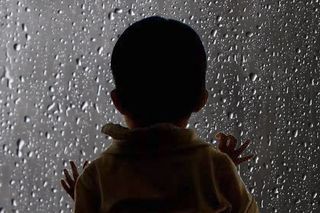
Law Panel Confirms Indian Stance on Parental Abduction of Children Treaty
The issue is a perfect storm of egalitarian ideals versus women’s rights.

A judicial committee has recommended that India abstain from signing the Hague Convention on Civil Aspects of International Child Abduction. The treaty, which the US has been pressuring India to accede to for several years, requires countries who sign it to return a runaway parent and child to the child’s country of “habitual residence” in cases of transnational marital discord.
Similar to an extradition treaty, the Hague convention would require an Indian parent residing in, say, the UK, who took their children to India without the consent of the other parent, to be returned with the children from India to the UK.
The Union government-appointed committee, led by Justice Rajesh Bindal, recommended against India signing the treaty, counter to the Law Commission of India. The Law Commission of India has previously ruled in favor of signing the treaty, citing that it would be in the best interest of the child.
The Justice Rajesh Bindal committee made their recommendation, on the other hand, based on the premise that the treaty would negatively impact Indian women fleeing abusive marriages abroad. In a 2016 review of the treaty, the Law Commission itself cited data illustrating that 68% of parents taking their children away to different countries are mothers, and that 85% of these women are the primary caregivers for their children.
In 2016, Women and Child Development Minister Maneka Gandhi decided that India would not sign the Hague treaty. Prior to her decision, the Law Commission had endorsed acceding to the Hague Convention, even suggesting a one-year jail term for a parent who brought a child to India from a different country without the consent of the other parent, unless it was a case flight from domestic violence.
“We found that there are more cases of Indian women who return to the safety of their homes in India after escaping a bad marriage,” a WCD official said in 2016. “Cases of women who are foreign citizens, married to Indian men, going away with their children are far fewer. Hence signing the Hague Convention would be to the disadvantage of Indian women.”
According to the WCD Ministry, the pressure from developed countries for India to sign the Hague treaty is based on the idea that the father should have equal rights to the child if the mother runs away to a foreign country. “But that doesn’t apply here given the reality of Indian marriages,” said the WCD official.
At the time, the WCD Ministry also did not agree to ratify the treaty in order to protect victims of domestic violence. According to the WCD Ministry, signing the treaty, even if there was a clause involving domestic abuse, would result in Indian women being returned to and arrested by the foreign country if the father had filed a case for abduction there. “This strips them of the protective cover they have in their own country,” said the official. Since India hasn’t signed the treaty, in such cases, the parent filing a case of abduction must come to India and go through the legal system here to claim custody of the child.
In light of the recent recommendation by the Justice Rajesh Bindal committee, the WCD Ministry has said that it will take a position on the treaty after reviewing the new report. Though the committee has advised against signing the Hague treaty, it did acknowledge the need for a global authority which will adjudicate disputes between an Indian parent fleeing to India — but one whose terms and conditions are determined by India. The committee has proposed an “Inter Country Parental Child Removal Disputes Resolution Authority” to deal with cases where children are wrongfully detained by a parent, to be headed by an Indian Supreme Court or High Court Chief Justice or judge.
This may be the closest thing to a happy medium any resolution can offer. India, ostensibly wanting to protect citizens on their home turf, is lending greater weight to the stories of Indian women who have left the US with their children, who “have claimed that they and/or their children were subjected to routine, psychologically traumatic abuse by their husbands and in-laws. When they made complaints to the authorities, either no action was taken, they were forced to move into shelters, or their children were removed by child protective services.” It’s worth noting India is not the only country to have this concern; Japan waited until 2013 to ratify this treaty on precisely the same grounds.
Yet by not signing the treaty, critics argue, India risks becoming a safe haven for transnational parental abduction of children. They also point out that abuse is not the only reason for taking children into a different country, and “experts consider child abduction to be child abuse with long-lasting traumatic effects.”
In the end, it comes down to protecting the rights of one parent over the rights of another – anathema to democracy and to liberal values. When one parent has traditionally been the more vulnerable, disenfranchised party, in the relationship, it may seem the duty of the state lies there. But that risks stifling egalitarian progress. The ‘reality of Indian marriages’ argument was used recently to rubbish the possibility of paternity leave, too.
The committee’s recommendation for an “Inter Country Parental Child Removal Disputes Resolution Authority” is brand new, but let’s hope it materializes so that it’s less about parental rights, and more about the child’s wellbeing. As Indira Jaising, a Supreme Court senior advocate argues: “Efforts must be made to negotiate with the foreign government on a case-to-case basis, and not simply label a parent as a child ‘abductor.’ This is possible only if both the parties want the ‘best interest of the child’ and not the mere physical location.”
Related


When Motherhood Is a Trophy, Everyone Loses
